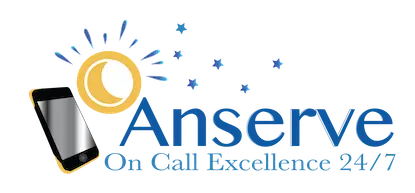There are many companies today that use answering services to provide specialized services for covering on-call needs. Instead of having company employees handle after-hours calls by forwarding the emergency number to their cell phone, many companies now use an answering service to provide after-hours coverage. By outsourcing to an answering service, companies will often cut costs, have increased redundancy and eliminate the headache of having to manage their own after-hours support staff.
#1 Research the Company’s Stability & Experience:
How many years has the answering service been in business? Who owns the telephone answering service? Are resumes on key owners and management staff of the answering service available? Can the phone answering service provide current references in your business?
#2 Look into After Hours Support:
Answering services can often provide dedicated operators during certain busier time periods, for example, the hours right after the support line is switched over to answering service. Providing dedicated operators through sophisticated call routing software carries a higher cost than normal call taking. However, the increased cost for dedicated service is usually significantly less than what it would cost a company to pay its own employees to provide after-hours support. Outsourcing after-hours support allows the end-user to focus on running their core business and sales.
Here are some examples of companies that often use Answering Services for dedicated after-hours support:
- Pharmaceutical Companies
- Health Insurance Companies
- Biotech Companies
- Medical Device Companies
- Small Businesses
- Large Enterprise
- Property Management Companies
#3 Take a Close Look at Live Agents:
How does the answering service ensure that enough staff is available to minimize ringing or hold times? Can they use remote operators to help cover peak hours or extreme weather conditions? If the phone answering service is adequately staffed, ring times should be five or less and hold times less than one minute.
#4 Review the Testing & Training Process:
How is the telephone answering service staff trained? Is the call center tested by a recognized trade organization for proficiency? Does the answering service staff regularly receive advanced training? Are answering service managers tested for competency by a recognized trade organization?
#5 Consider Certifications:
Does the call center participate in the Association of TeleServices International (ATSI) 24/7 Call Center Certification program for its business, supervisors, and customer service representatives? This comprehensive program covers over 60 critical points in operations, training, and emergency procedures for the business site to be certified, and the supervisor and customer service representative certifications requirements include on-the-job experience and a demonstration of skills and job knowledge. The Certification program, a Peer Review Program focused on 99.99% Annual Run-Time, was introduced in 2002.
#6 Don’t Forget to Check the Company’s Security & Compliance:
Does the phone answering service comply with local, state, and federal regulations and carry business insurance including Errors and Omissions Coverage? If it handles medical accounts, is it HIPAA compliant?
#7 Learn What Kind of Technologies They Are Using:
Does the call center have back-up power and redundancy of critical system components?
#8 Consider the Features & Services You Want:
- Are call center customer service representatives available 24 hours a day, 7 days a week, and on all holidays?
- Does the phone answering service offer a combination of automation and customer service (live) reps appropriate for your business? The use of a personalized announcement to give office hours, directions, and account information with an option to access a live operator is one way to reduce costs.
- Does the call center offer a variety of message notification methods such as e-mail, text messaging, paging, voicemail and phone calls to meet your current and future needs? State-of-the-art call centers should be able to reach you by any of these methods.
- Do the customer service reps at the call center have the ability to access the Internet? Do they offer the ability to post on-call schedules and other info on shared web pages?
- Can the telephone answering service record all conversations to provide solutions to “he said, she said” issues? Can you readily access these recordings? How long are they kept? How long are messages kept? If you have problems with how your calls are handled or if your messages are lost, you will need the call center to have them for you.
- Ask what other business support services they may offer. Many services now have the capability to schedule appointments, confirm reservations, order taking, provide a help desk, and performing inbound and outbound customer service.
#9 Do They Provide Personalized Features or Multilingual Services?
Can the phone answering service provide service in other languages such as Spanish if this is important to your business? Some telephone answering services can provide multi-lingual services and help you gain and retain foreign language speaking customers.
In the medical and emergency support field, many doctors and technicians are receiving their information on their cell phones instead of using alpha pagers, digital pagers, or landlines. Many doctors and technicians are using text messaging to receive their emergency calls. Receiving the information via text allows the doctor or technician to properly triage the call. For example: If a doctor or technician is driving they can pull over and read the message instead of having to answer a ringing phone. Another example would be an electrician who is in the middle of an install can wait a few minutes to finish the job and then check the text message. If the text comes in very close together the doctor or technician can take care of the more important calls first instead of getting delayed by verbally taking the message.
Not all answering services have the ability to text via the SMS (Short Message Service) protocol. The SMS protocol allows for the end-user to reply back that they got the message. The reply back feature is useful for doctors or technicians that require that the answering service confirms receipts. Once the end-user receives the message they reply back that they received the message the answering service then receives a message on the end-users account that confirms receipt. The SMS feature to cell phones is quickly becoming a favorite means of communication in the answering service industry due to its accuracy, reply back ability, and reliability.
#10 Look for Answering Service Pricing & Flexibility:
Does the call center provide clear, understandable rate plans? How long are the prices guaranteed? Does the call center offer a written contract? The telephone answering service should work with you to design a flexible service package that fits your company’s needs.
Anserve checks all of these boxes. Contact us to learn more!


